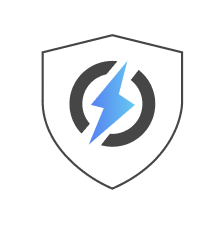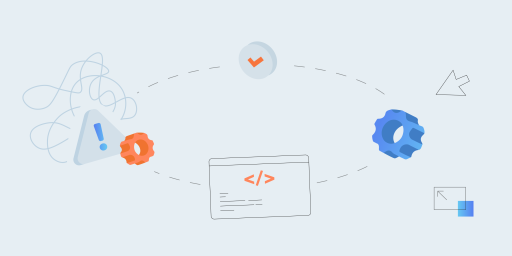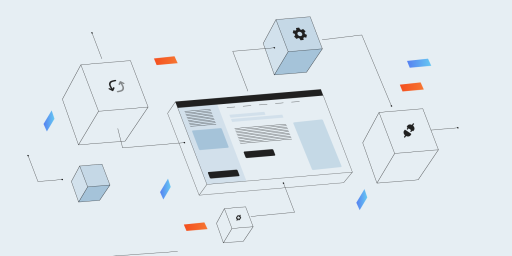Bad software testing directly affects revenue. One critical bug can cost millions in lost customers, fixes, and damaged reputation. For startups, it could mean losing momentum, missing a funding round, or burning the runway too fast.
That’s why choosing the right software testing company matters.
Not just any name on a list of top software testing companies in the USA — but a reliable software testing partner who aligns with your development process, QA goals, and business expectations.
We’ve reviewed the most trusted software testing companies in the USA — those consistently delivering measurable results, not just test reports. Whether you need full-cycle testing and quality assurance, security testing, or custom QA testing services, these are the providers that help companies build high-quality software.
Best 10 Software Testing Companies in USA: QA & QE
When searching for the best software testing companies in USA, it’s crucial to evaluate their comprehensive testing solutions, specialized expertise, and proven track record in quality assurance and software testing. Each company offering below delivers a unique mix of QA services, automated and manual testing, and technical depth across various industries.
1. TestFort
Headquarters: Nevada, USA
Founded: 2001
TestFort delivers engineering-led QA and software testing services with a 24-year track record in software engineering and software quality. They’ve built their reputation on AI-enhanced QA, robust automation frameworks, and full-scale testing support that integrates seamlessly with the software development process.
Why Clients Choose Them: Companies select TestFort for their automated testing, manual testing, and enterprise-grade security testing — especially for application testing that requires high compliance. As a software testing services company, they stand out for their mature approach to test strategy and documentation.
2. Luxe Quality
Headquarters: USA, Spain, Ukraine
Founded: 2016
Since 2016, Luxe Quality has earned a reputation for helping companies build confidence through high-quality software that users trust. Their services span manual and automated testing, QA audit, custom QA architecture, supported by AI-enhanced tools for fast and confident results.
Why Clients Choose Them: Companies trust Luxe Quality for their collaborative and outcomes-focused approach. From startups to complex enterprise systems, they adapt QA to real business goals, ensuring software is secure, reliable and market ready.
3. QASource
Headquarters: California, USA
Founded: 2000
QASource is a leading software testing firm providing QA and software testing across cloud, blockchain, and Salesforce platforms. Their global software team includes over 1400 experts offering everything from compatibility testing to continuous testing.
Why Clients Choose Them: Their approach to independent software testing and integration with software development teams ensures coverage across all types of testing, including regulated and fast-moving domains.
4. DeviQA
Headquarters: New York, USA
Founded: 2010
DeviQA’s 250+ experts specialize in automated testing, functional testing, and AI-enhanced QA processes. With experience in software solutions across industries, they build custom test strategies for complex software applications.
Why Clients Choose Them: Their scalable QA team supports fast iterations and helps reduce costs while maintaining high-quality software testing, often combining localization testing and performance metrics into each engagement.
5. QualityLogic
Headquarters: Idaho, USA
Founded: 1986
A legacy testing and quality assurance company, QualityLogic offers manual and automated testing, load testing, and usability testing as part of its domain-focused strategy, especially in healthcare and energy.
Why Clients Choose Them: They are a trusted software testing partner for companies with critical infrastructure. Their knowledge of QA and software makes them ideal for teams needing independent software testing companies.
6. ImpactQA
Headquarters: Texas, USA
Founded: 2012
ImpactQA blends software testing and quality assurance with AI/ML solutions and IoT testing. They cover mobile testing, cloud testing, and regression testing through a global team of 250+ engineers.
Why Clients Choose Them: Their strength lies in comprehensive testing that supports testing efforts across enterprise and mid-size software development companies undergoing transformation.
7. Cigniti
Headquarters: Hyderabad, India (with significant US offices)
Founded: 1998
Cigniti delivers global testing services, including DevOps QA, test tools setup, and QA outsourcing. With 4,000+ engineers, they’re one of the leading independent software testing companies operating in the USA.
Why Clients Choose Them: Their test strategy models and testing methodologies support testing across large systems and help ensure performance, security, and availability in mission-critical applications.
8. TestingXperts
Headquarters: Pennsylvania, USA
Founded: 2013
A prominent software testing and QA company, TestingXperts supports application testing, data testing, and QA automation across regulated and agile environments. Their accelerators help scale QA and software testing without slowing delivery.
Why Clients Choose Them: Their company specializing in software testing is preferred for industry-specific projects where tools, process maturity, and reporting are key differentiators.
9. TestMatick
Headquarters: New York, USA
Founded: 2009
TestMatick offers mobile testing, game testing, and penetration testing from global delivery centers. They support clients in media, finance, and SaaS, helping teams meet evolving testing needs across platforms.
Why Clients Choose Them: Their software testing process supports tight delivery cycles, with the QA team acting as part of the client’s software development lifecycle.
10. Testrig Technologies
Headquarters: Texas, USA
Founded: 2015
Testrig supports blockchain testing, cloud testing, and AI/ML-powered test automation. They help tech-driven companies implement testing throughout the dev cycle, using agile principles and custom software QA plans.
Why Clients Choose Them: A newer yet rapidly growing software testing company in the USA, Testrig brings innovation and speed to companies looking to hire QA services for modern tech stacks.
How to Pick the Best Software Testing Service for Your Project
Finding the right software testing partner isn’t about picking the cheapest option or the company with the flashiest website. You need to find a team that can genuinely enhance your development process and catch issues before they reach your users. Here’s how to evaluate potential partners beyond the surface level.
Assess how mature this QA testing service is
A mature testing process is your first indicator of a reliable partner. Look for companies that follow established frameworks like ISTQB or have their own well-documented methodologies.
What to ask:
- How do they structure their test planning and execution phases?
- Do they use risk-based testing to prioritize critical functionality?
- How do they handle test case management and defect tracking?
- What’s their approach to regression testing when new features are added?
Red flags: Vague answers about their process, no standardized documentation, or an over-reliance on “we figure it out as we go.”
Need testing that meets enterprise maturity standards?
Our CMMI-compliant processes deliver the reliability and documentation your stakeholders expect.
Evaluate the technical depth of their QA team
The best testing partners have teams with diverse technical skills, not just people who can click through applications manually.
- Programming skills. Can they write automated tests, understand your codebase, and create custom testing tools when needed?
- Database testing. Do they know how to validate data integrity, test stored procedures, and check for SQL injection vulnerabilities?
- API testing. Can they test REST/GraphQL endpoints, validate JSON responses, and understand authentication flows?
- Security awareness. Do they incorporate basic security testing principles, even if they’re not penetration testing specialists?
Practical test: Ask them to walk you through how they’d approach testing a specific feature in your application. Their answer should demonstrate both technical knowledge and strategic thinking.
Match testing specialization to your needs
Different applications require different testing expertise. A partner who excels at web application testing might struggle with mobile performance testing.
Performance testing specialists understand load patterns, can simulate realistic user behavior, and know how to identify bottlenecks in different system components.
Mobile testing experts have experience with device fragmentation, network conditions, battery usage, and platform-specific behaviors.
API testing specialists can validate endpoints, test rate limiting, ensure proper error handling, and verify data contracts between services.
Don’t settle for generalists if you have specific technical requirements. A company that claims to do everything well often doesn’t excel at anything.
Examine their tool stack and automation approach
Modern testing requires the right combination of tools and human expertise. Evaluate both their technical capabilities and their philosophy around automation.
| Category | What to Look For | Examples of Good Tools | Red Flags |
| Web Automation | Proficiency with modern frameworks, cross-browser testing capabilities | Selenium, Cypress, Playwright, WebDriver | Only knows outdated tools, can’t explain tool selection rationale |
| Mobile Testing | Experience with both iOS and Android, real device testing | Appium, Espresso, XCUITest, BrowserStack | Only emulator testing, no cloud device experience |
| API Testing | Can validate endpoints, authentication, data contracts | Postman, REST Assured, Newman, Insomnia | Manual API testing only, no automated validation |
| Test Management | Organized test case management and execution tracking | TestRail, Zephyr, Jira, Azure DevOps | Spreadsheet-based tracking, no traceability |
| CI/CD Integration | Seamless pipeline integration, automated reporting | Jenkins, GitLab CI, GitHub Actions, Azure Pipelines | Manual test execution only, no pipeline knowledge |
| Performance Testing | Load testing and monitoring capabilities | JMeter, K6, LoadRunner, Gatling | No performance testing experience |
| Custom Solutions | Ability to build tailored testing tools when needed | Python/JavaScript scripting, custom frameworks | “One size fits all” mentality, inflexible approach |
| AI-Powered Testing | Experience with intelligent test automation and self-healing tests | Virtuoso, Testim, Mabl, Applitools Eyes | Overhyping AI capabilities, no traditional automation backup |
Assess сultural and сommunication аit
Technical skills matter, but cultural alignment determines whether the partnership will be productive long-term.
Communication style. Do they ask thoughtful questions about your business goals, or do they focus only on technical specifications?
Collaboration approach. How do they handle disagreements about test priorities or findings? Do they work with your team or dictate to them?
Transparency. Are they upfront about limitations, timeline challenges, and when they need additional information from your team?
Time zone and availability. Consider whether their working hours align with your team’s schedule and how they handle urgent issues.
Verify domain-specific experience
Industry experience can be the difference between catching critical issues and missing regulatory requirements or user expectations. A testing partner who understands your specific domain will ask better questions, identify risks you might not have considered, and ensure your application meets both functional requirements and industry standards.
Financial software testing requires deep understanding of compliance requirements, transaction accuracy, and security standards. Partners should demonstrate knowledge of PCI DSS compliance for payment processing, SOX requirements for financial reporting, and fraud detection mechanisms.
A software testing company should know how to test complex financial calculations, validate audit trails, and ensure data accuracy across different transaction types. A good financial software testing partner will understand the importance of testing rollback procedures and maintaining data integrity during system failures.
Key questions to ask:
- How do you test for financial data accuracy and audit trails?
- What’s your approach to PCI DSS compliance testing?
- How do you validate complex financial calculations and multi-currency transactions?
- What experience do you have with regulatory reporting and SOX compliance?
Healthcare application testing involves strict regulatory compliance and patient safety considerations. Partners should have experience with HIPAA compliance testing, ensuring that protected health information (PHI) is properly secured and accessed only by authorized users.
When hiring a software testing company, ensure they understand healthcare workflow patterns, medical device integration requirements, interoperability standards like HL7 and FHIR, and accessibility testing. They should also know how to validate clinical decision support systems and ensure that critical patient data is never lost or corrupted during system updates.
Key questions to ask:
- What’s your approach to testing patient data privacy and HIPAA compliance?
- How do you validate medical workflow accuracy and clinical decision support?
- What experience do you have with HL7/FHIR integration testing?
- How do you test medical device integration and data accuracy?
E-commerce platform testing requires an understanding of complex user journeys, payment processing, and high-traffic scenarios. Partners should have experience testing shopping cart functionality, payment gateway integrations, inventory management systems, and order fulfillment processes.
They should understand how to test for cart abandonment scenarios, handle peak traffic during sales events, and validate complex pricing rules, including discounts, promotions, and tax calculations. Look for experience with testing recommendation engines, search functionality, and mobile commerce applications.
Key questions to ask:
- How do you test checkout flows and payment gateway integrations?
- What’s your approach to handling seasonal traffic spikes and load testing?
- How do you validate complex pricing rules and promotional campaigns?
- What experience do you have with testing recommendation engines and search functionality?
B2B software testing involves complex enterprise requirements, including sophisticated user permission systems, data import/export capabilities, and integration with other business systems. Partners should have experience testing role-based access control systems, multi-tenant architectures, and complex approval workflows.
Testing partner for your business should understand how to validate bulk data operations, test API integrations with third-party systems, and ensure data accuracy during migration projects.
Key questions to ask:
- How do you validate complex permission matrices and role-based access control?
- What’s your approach to testing bulk data operations and migrations?
- How do you test API integrations with enterprise systems?
- What experience do you have with SSO and advanced reporting functionality?
SaaS platform testing requires understanding of multi-tenancy, scalability, and subscription management. Partners should know how to test data isolation between tenants, validate billing accuracy across different subscription models, and test feature rollouts to specific customer segments.
They should have experience with testing API rate limiting, webhook functionality, and integration capabilities that allow customers to connect the SaaS platform with their existing tools.
Key questions to ask:
- How do you ensure tenant data separation and test multi-tenancy?
- What’s your approach to testing subscription lifecycle and billing accuracy?
- How do you validate API rate limiting and webhook functionality?
- What experience do you have with feature rollout testing and A/B testing?
Mobile gaming testing involves unique challenges around performance optimization, in-app purchases, and user engagement features. Partners should understand device compatibility testing across different screen sizes and hardware configurations, validate monetization flows, including in-app purchases and advertising integration, and test social features like leaderboards and multiplayer functionality.
A quality testing service should know how to plan QA to check for battery drain, memory usage, and network connectivity issues that can significantly impact user experience.
Key questions to ask:
- How do you test across different device configurations and screen sizes?
- What’s your approach to validating in-app purchase flows and monetization?
- How do you test social features and multiplayer functionality?
- What experience do you have with performance testing for battery and memory usage?
IoT application testing requires expertise in testing device connectivity, real-time data processing, and edge computing scenarios. Partners should have experience testing communication protocols between devices, validating sensor data accuracy, and ensuring system reliability during network interruptions. They should understand how to test firmware update processes, device provisioning, and data synchronization between edge devices and cloud platforms.
Key questions to ask:
- How do you test device communication and handle network interruptions?
- What’s your approach to validating sensor data accuracy and real-time processing?
- How do you test firmware updates and device provisioning?
- What experience do you have with edge computing and data synchronization testing?
Ask for specific examples when evaluating domain expertise. Request detailed case studies or references from similar projects, and ask probing questions about specific challenges they encountered and how they solved them. For example, if you’re in healthcare, ask how this QA testing company handled testing a system that needed to maintain patient data privacy while allowing emergency access. If you’re in e-commerce, ask about their experience testing during Black Friday-level traffic spikes.
Planning to scale fast?
TestFort’s flexible testing infrastructure grows with your team and adapts to new technical challenges.
Look for partners who can demonstrate not just awareness of your industry’s requirements but actual hands-on experience with the unique testing challenges your domain presents.
Landing The Most Reliable Software Testing Team
The right testing partner feels like an extension of your team rather than an external vendor. They should demonstrate a genuine interest in your product’s success, not just completing their contracted tasks.
Start with a pilot project to evaluate their actual performance before committing to a long-term partnership. This gives you concrete data about their communication, technical skills, and ability to deliver results. A pilot project should be substantial enough to demonstrate its capabilities but limited enough to minimize risk if things don’t work out well.
Consider a QA audit as an assessment tool. Many reputable testing companies offer QA audits as separate, paid projects that are typically cost-effective and provide immediate value. A QA audit involves the testing partner reviewing your current testing processes, identifying gaps in test coverage, and recommending improvements to your overall quality assurance strategy.
This approach serves a dual purpose: you get actionable insights to improve your testing immediately, and you get to evaluate the partner’s analytical skills, attention to detail, and understanding of your domain.
The audit deliverables – usually including gap analysis, risk assessment, and improvement recommendations – give you concrete examples of their expertise and communication style before making a larger commitment.
Set clear success metrics from the beginning, including defect detection rates, test coverage goals, and timeline expectations. Define what success looks like in specific, measurable terms. For example, establish targets like “find 90% of critical bugs before production release” or “complete regression testing within 48 hours of code deployment.” Make sure both teams understand how progress will be measured and reported.
Evaluate their onboarding approach. The best testing partners will have a structured process for getting up to speed with your application, understanding your business requirements, and integrating with your development workflow. They should ask detailed questions about your user base, critical business flows, and existing pain points. Poor partners will jump straight into testing without taking the time to understand your context.
Assess long-term scalability. Consider whether the partner can scale their involvement up or down based on your needs.
- Can they handle increased testing volume during major releases?
- Do they have the capacity to support you during critical business periods?
- Will they be able to adapt as your application grows and your testing requirements become more sophisticated?
Start small, think big – let TestFort prove our expertise with a pilot project tailored to your most critical testing challenges
Invest in a partner who can truly enhance your development process and help you ship better software faster. A slightly more expensive partner who prevents a single critical production bug or reduces your release cycle by a week will typically pay for themselves many times over.
Wrapping Up: Choose the Right Software Testing Partner
Bad software testing costs money. Good software testing saves it.
The companies above represent proven testing service providers in the USA — not the biggest names or the flashiest marketing, but the ones that consistently deliver results when it matters.
Your choice shouldn’t be based on lowest price or longest feature list, or even on the promise of AI-driven automation testing. It should be based on three things: technical depth, domain expertise, and cultural fit.
The right app testing partner becomes an extension of your development team. They don’t just find bugs — they help you build better software, ship confidently, and avoid costly mistakes that damage your reputation.
Take the time to evaluate a testing team properly. Ask specific questions about their process, tools, and experience with projects like yours. Request references and detailed case studies, ask what in their opinion comprehensive software testing strategy looks for a specific domain.
Your software quality depends on this decision. Make it count.
Jump to section
Hand over your project to the pros.
Let’s talk about how we can give your project the push it needs to succeed!






